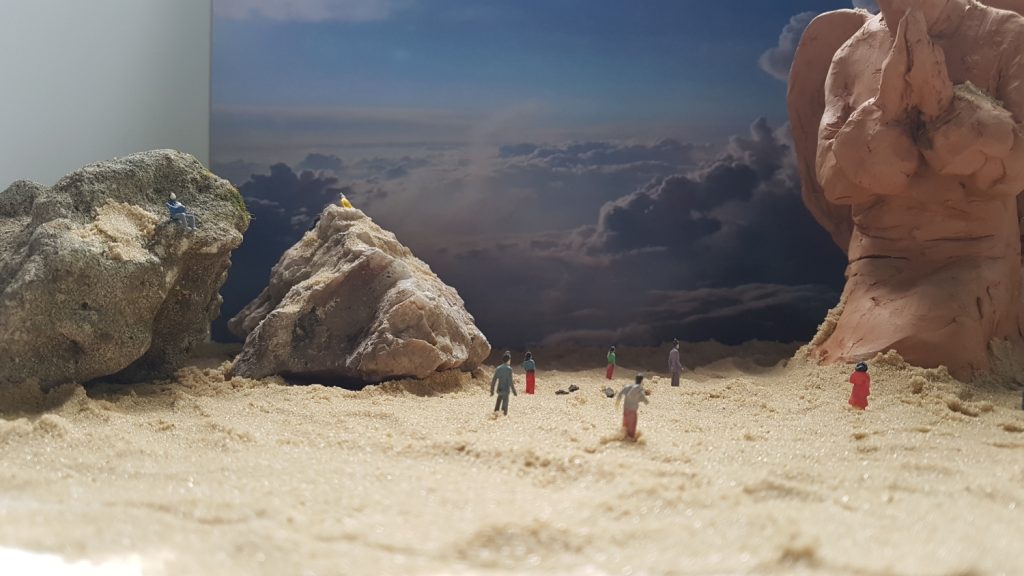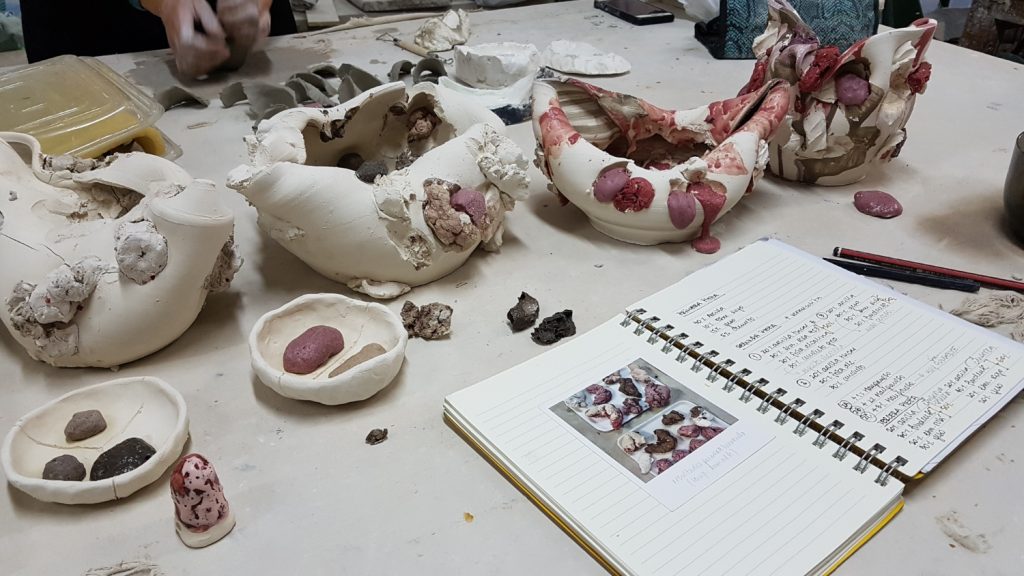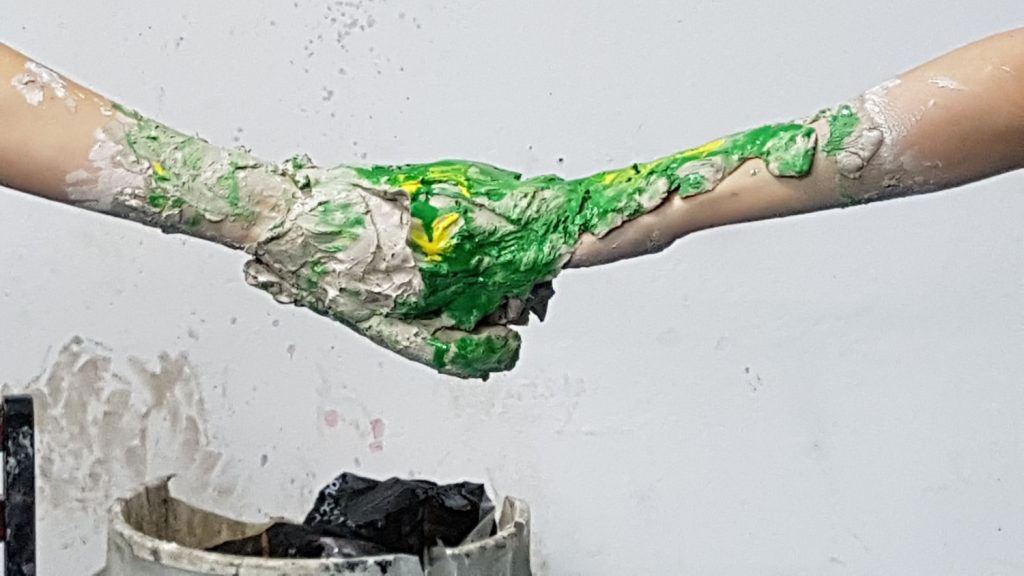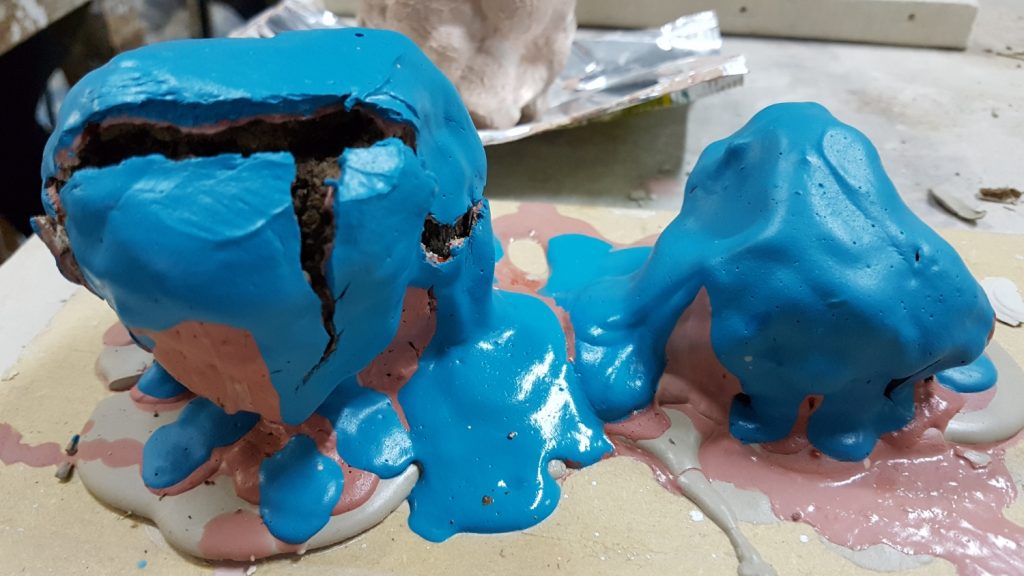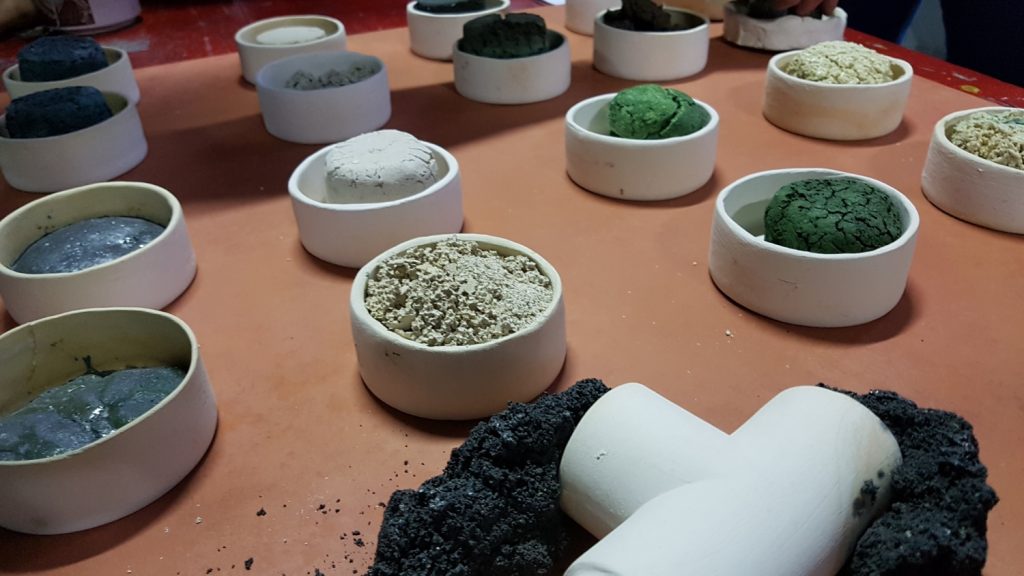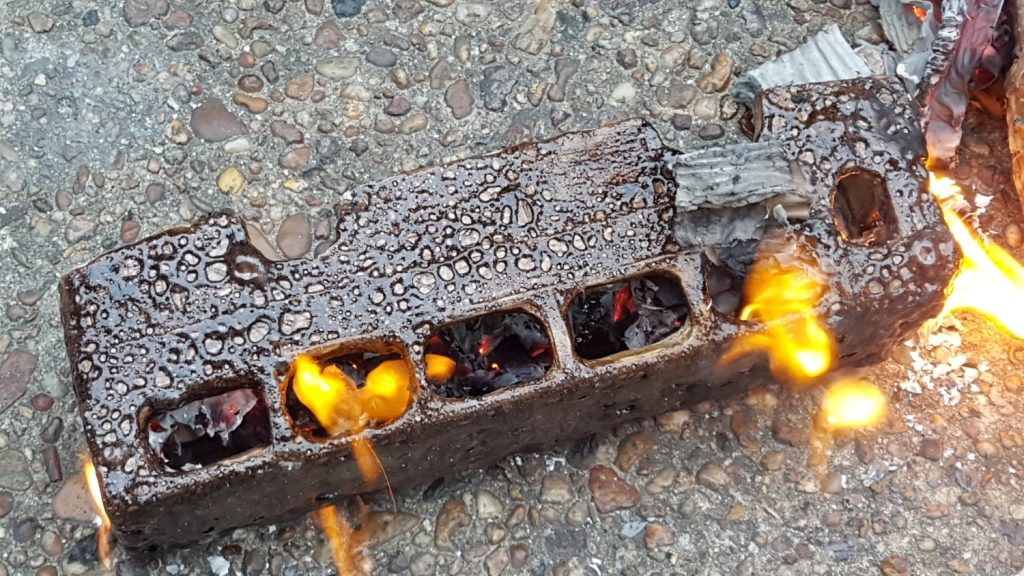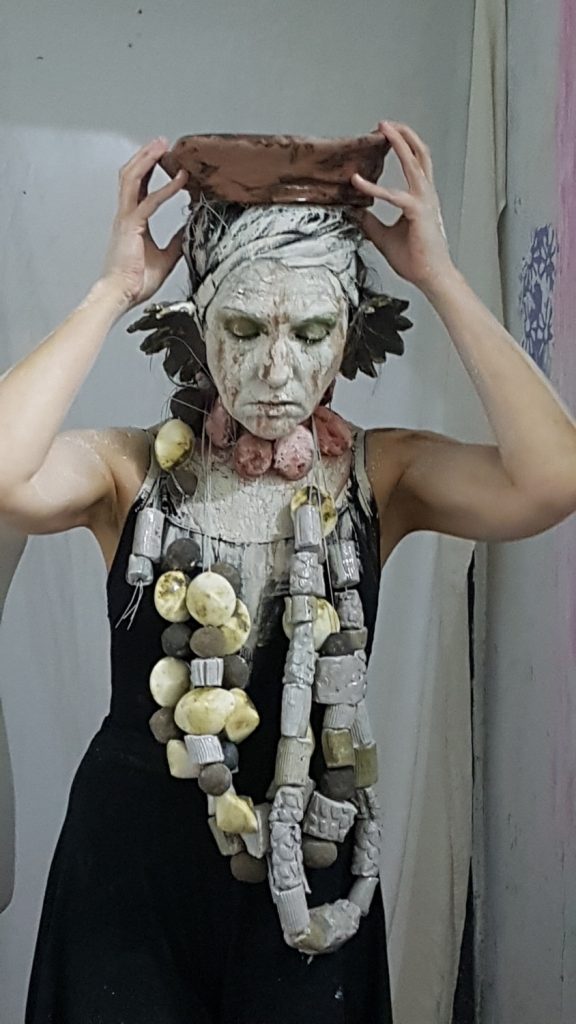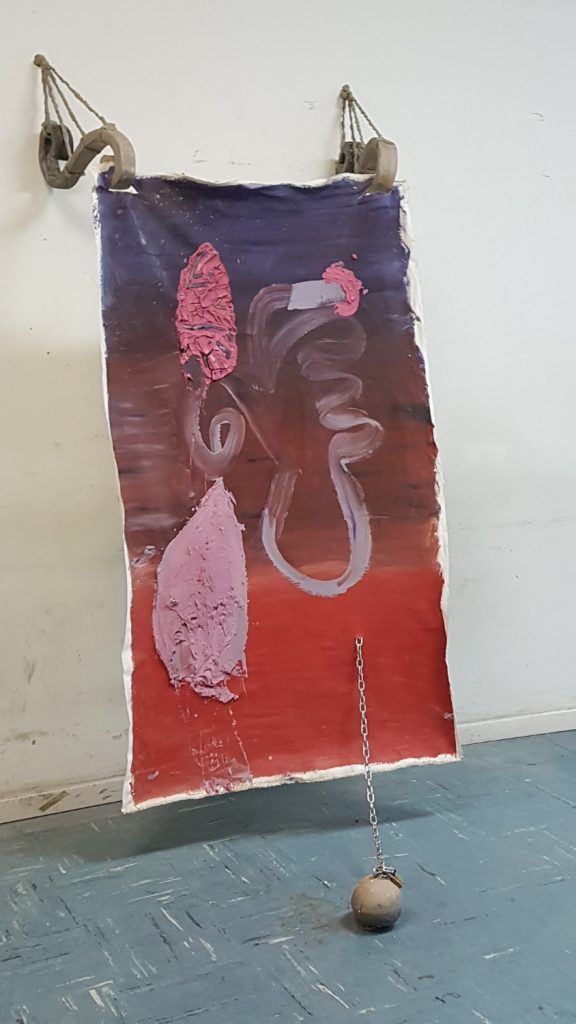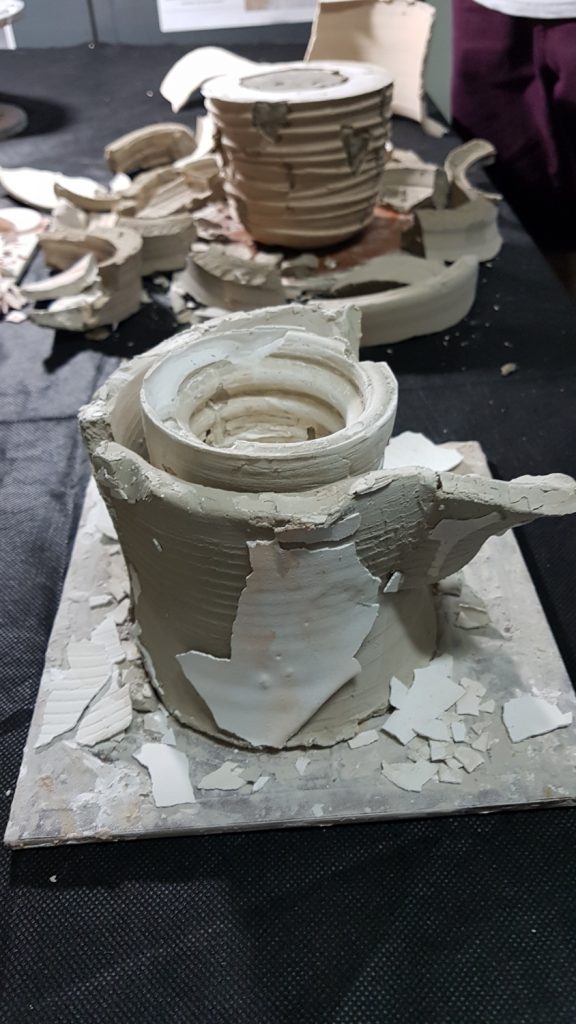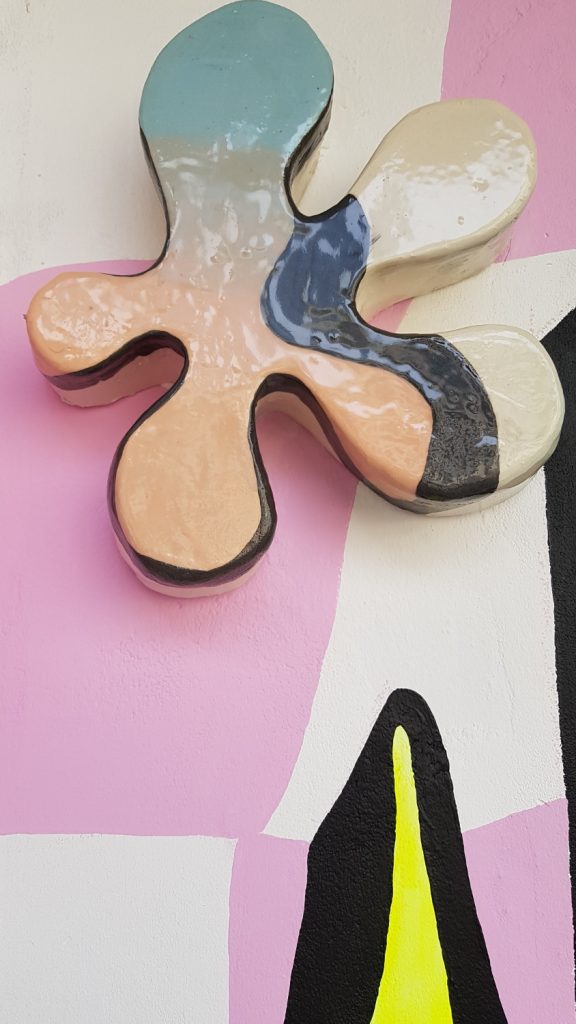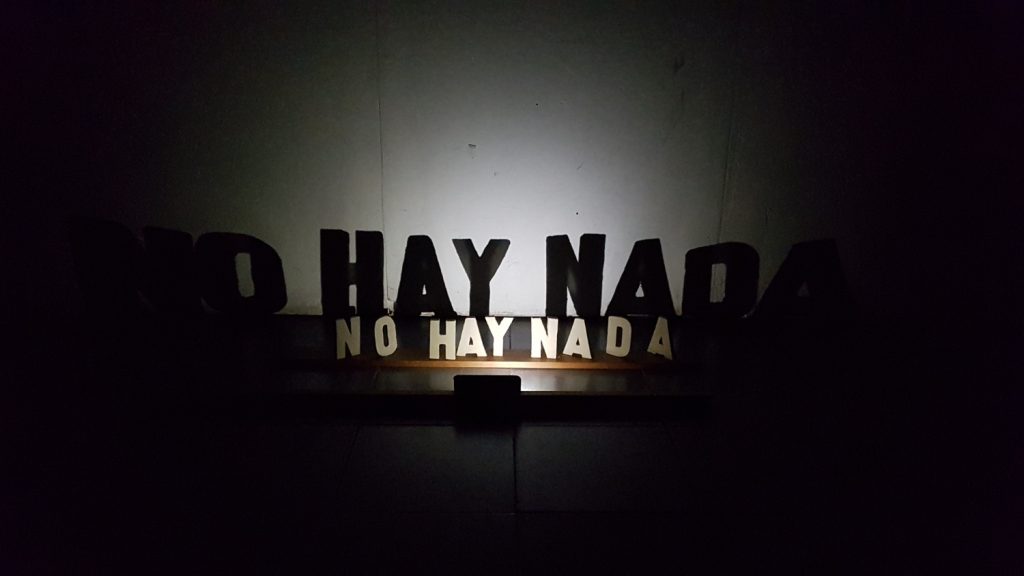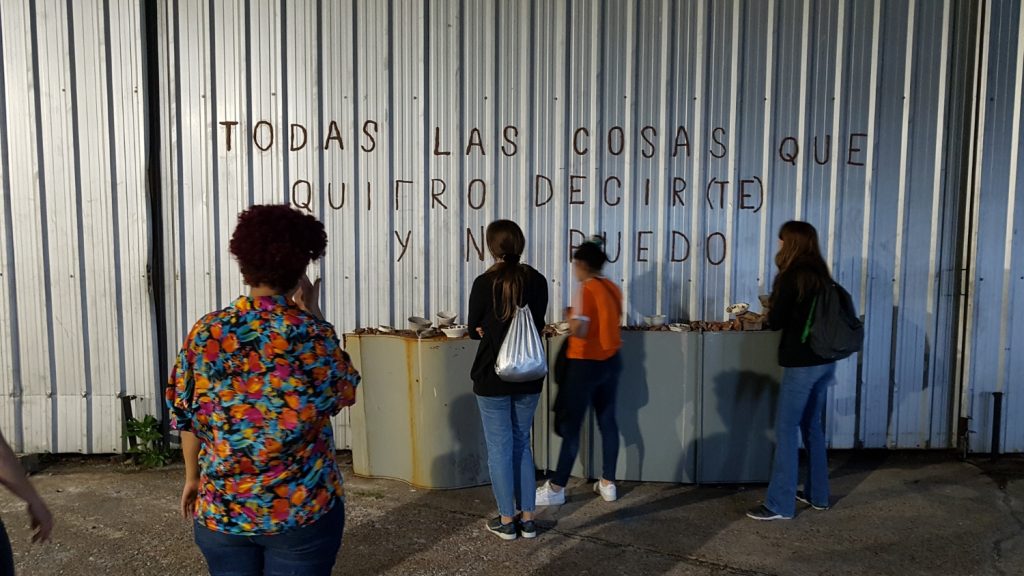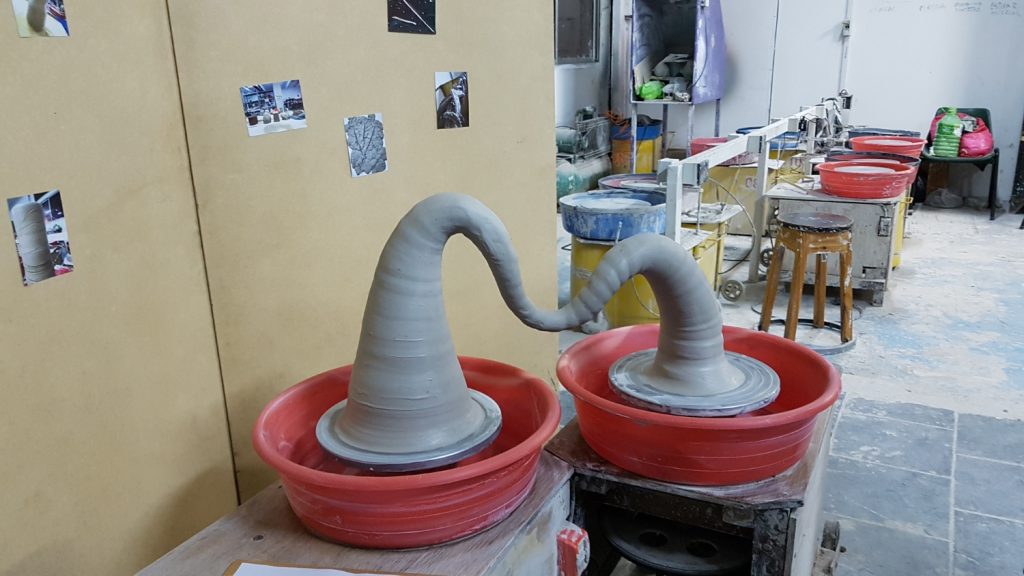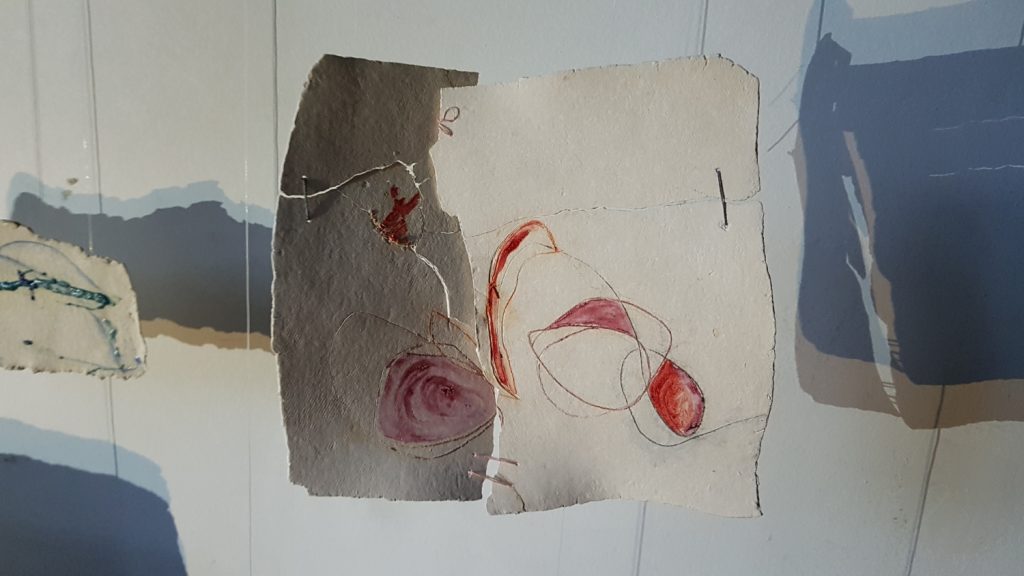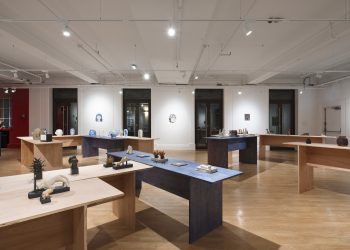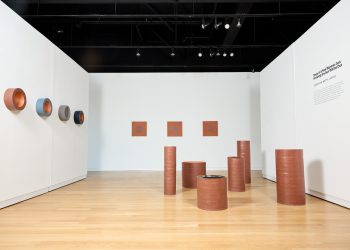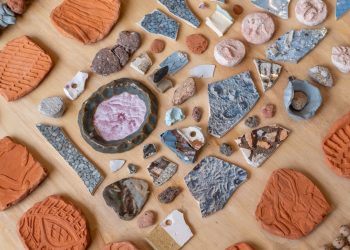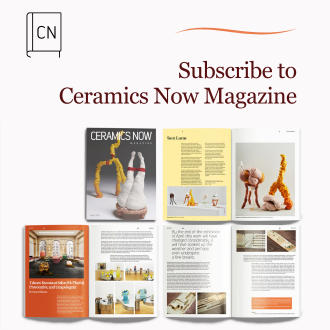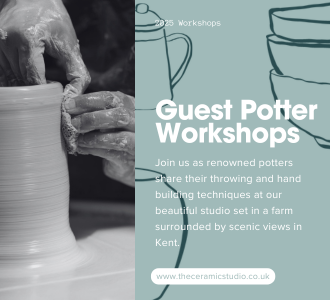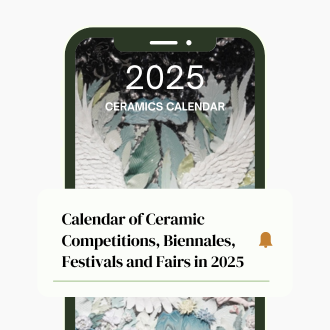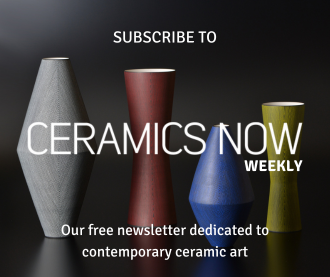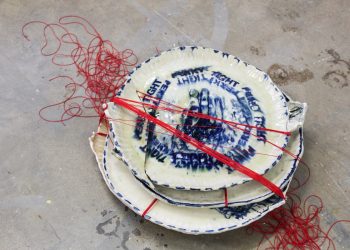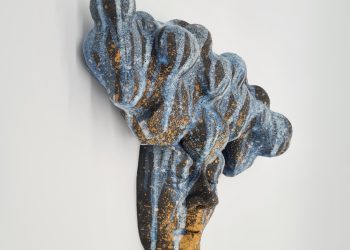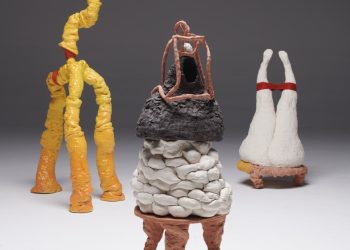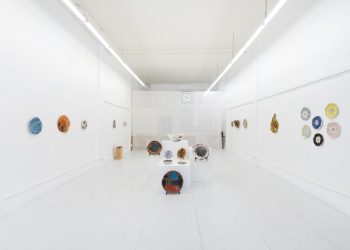By Graciela Olio, Anabel González Alonso, and Claudia Toro.
We consider contemporary ceramics to be part of the concept of expanded ceramics, which is a concept that amplifies and expands its subject area and thus decolonizes itself from the historical tradition that implies the training from and within the ceramic trade as the ceramist’s sole track. This activity also refers to the historical guidelines received from the Western European knowledge, which, installed in our Latin American region as of the Spanish colonization, have marked the production and teaching of ceramics in our country. Contemporaneity, on the contrary, broadens the knowledge out to emancipatory, transcultural and transdisciplinary practices, enabling spaces of a trans-, in-between and non-binary nature. Experiential, and thus transformational, knowledge builds an expertise that is in constant movement. We wish for and propose a critical view of the disciplinary approach to ceramics which has set up a bureaucratic and standardized teaching.
As Argentinean artists, teachers, and researchers who work in the field of contemporary ceramics, we propose to rethink the discipline based on a series of questions that involve multiple views on recurrent problems in pedagogical practices and, therefore, in current productions.
Our work as teachers takes place in a ceramics workshop of a practical nature, attended by students of the Visual Arts course of studies offered by the National University of the Arts (UNA). We also make up a research team whose project inquires into the necessity of reviewing the historical disciplinary structures, which in ceramics have determined not only the practices and productions but also its teaching. 1
Our attention is focused on that production and on the transformation that each of the workshop participants undergoes. Mostly, we focus on the investigative, experimental and observational nature of the production processes. Thinking from the perspective of expanded ceramics allows us to question the category of ceramics since it can be infinitely malleable, like mud itself. Disciplinary plasticity brings us into an in-disciplinary space where materials expand, adding to ceramics other non-metal solid inorganic components so that besides cooked paste, we can include raw clay and other ceramic materials like plaster, cement and glass. At some point of their formation-production, these materials have been physically and chemically modified through temperature (+700 °C), and therefore, scientifically speaking, they are classified as ceramic materials.
We are very much interested in incorporating these materials in the development of our practices and actions as ceramic materialities in themselves, rather than subsidiary materials of our activity, in which students mix, match and make those materials interact with their productions.
Expanding, extending, exceeding, forcing, breaking, stretching, disassociating, decentralizing… these are all operations that go beyond a territorial limit, working as escape routes from a closed, anachronistic system. Experimenting with the elasticity of the discipline frontiers allows questioning, which we consider to be vital for contemporary artistic practices.
We work for that purpose from our own artistic practices and our roles as researchers and teachers, thinking of our teaching practice as a space open to questions, doubts, mistakes, and uncertainty. We thus differentiate ourselves from the teaching historically developed in several institutions, where the technical-technological modes of doing related to the evolution of the trade and anchored in the craftsmanship-industry pair have determined all the answers.
At the same time, we point out the existence of an education system that reinforces normative principles which determine what kind of ceramics is accepted. It can thus be inferred that there is another kind of ceramics that is rejected. This kind of ceramics has been neglected and despised by the founding of ceramics learning environments formulated, organized and institutionalized by a colonizing rationale, which leaves aside multiple preexisting images, imageries, and ways of doing. These learning environments have been subject to the hegemonic rationale of Western thought.
The considerations given from our own workplace us in a space of questioning of the discipline, where we reexamine the concepts, frameworks, developments and horizons provided. Questions constitute the triggering pedagogical device. Could the discipline not be conceived, in Jacques Rancière’s terms, as a provisional and ephemeral grouping? It is then that the discipline can be understood as an area whose definition and delimitation is not “natural”, where historicity and contexts are fundamental. Therefore, we need to observe from which perspective it has been set up.
Do we as teachers manage to distance ourselves from the position of arbiters of truth and build-out of dialogue a process of experiential and experimental learning?
Do students manage to have a transformational experience and, in this way, enhance their choices in artistic practice?
With these questions as a starting point, how do we construct the discourse that holds us inside or outside of the discipline?
Bearing in mind all of these queries related to ceramic and disciplinary aspects with which we enter the workshop and get down to work, we understand that this is the place where the territorial dispute takes place. In every practice, in every artistic development, it is possible to see the power structure that establishes and determines the framework of what is possible. For this reason, we create spaces to develop artistic practices which, instead of separating in terms of disciplines, place us in transdisciplinarity and allow us to relate, link, include, and bind diverse elements and forms of knowledge that traditional ceramics had ruled out.
We firmly believe that it is necessary and urgent to generate new spaces, other indisciplined spaces, where it is indispensable that different cultural forms of knowledge and different expanded disciplinary territories coexist. A new field of study is thus created, without rigid limits, where trans- is valued and enhances practices, favoring the use of words and the construction of its own discourses.
Graciela Olio, Claudia Toro and Anabel González Alonso are part of the teaching team of Ceramic Workshop II, III and IV, Olio Chair, of the Visual Arts Course of Studies, Specialization in Arts of Fire. Department of Visual Arts “Prilidiano Pueyrredón”, National University of the Arts (UNA), Buenos Aires, Argentina.
Translation by Margó translations.
Photos of students works (year 2019) courtesy of Olio Chair.


